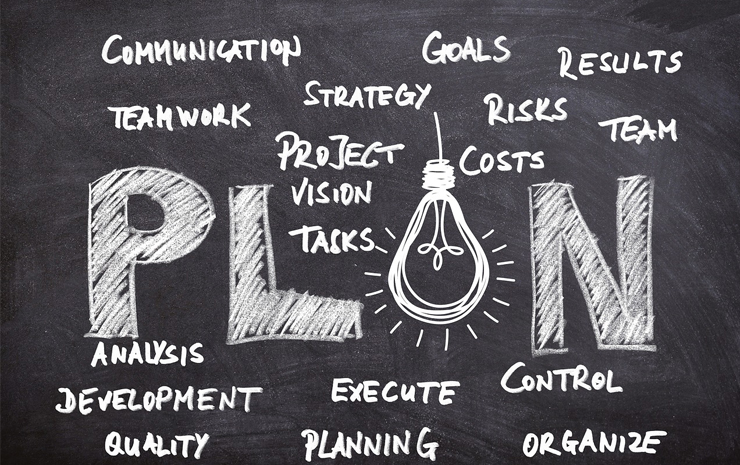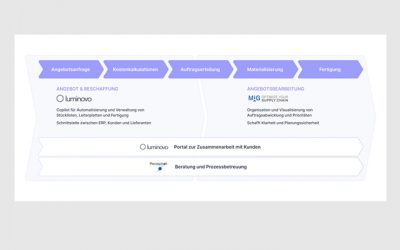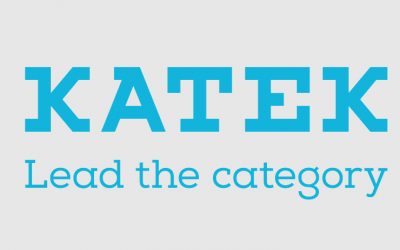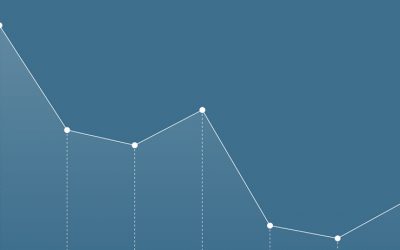Perzeptron GmbH has established itself as a supply chain expert with almost 30 years of experience and specialist knowledge in the structuring, optimization and management of supply chains. Over the years, the company has gained in-depth insights into changing requirements and the challenges facing the industry.
This wealth of experience allows Perzeptron GmbH to offer not only theoretical knowledge, but also tried-and-tested solutions in various supply chain contexts. The company has overcome a wide range of situations, from logistical challenges to technological developments, giving it a deep understanding of supply chain dynamics.
The long road to becoming a recognized supply chain expert
“Supply chain expert” isn’t just a throwaway title. This claim is based on our in-depth specialist knowledge and years of experience that are proven in theory and practice. A supply chain expert is characterized by the ability to structure complex logistics and supply networks, proactively address challenges and develop innovative strategies to optimally manage and continually improve supply chains!
How do you become a supply chain expert?
To become supply chain experts, you need a combination of education, experience, continuous training and networking. Here are a few steps you can take to reach “supply chain expert” status:
- Get educated and qualified
Pursue a formal education in areas such as logistics, supply chain management, business administration or related fields. Obtain certificates or qualifications to acquire in-depth knowledge of specific areas of the supply chain.
- Gain experience
Gain practical experience in different areas of the supply chain to develop a deep understanding of the relevant processes and challenges. Take responsibility for projects and tasks to strengthen your leadership skills.
- Never stop learning
Find out about current trends, technologies and best practices in the supply chain. Attend training courses, seminars and conferences to continually expand your knowledge.
- Build networks
Connect with other industry experts through professional associations, networking events or online platforms. Share your knowledge and experience to be recognized as an expert.
- Become specialized
Identify specific areas of the supply chain in which you would like to become a qualified expert (e.g. inventory management, transport logistics, sustainability). Focus on developing additional expertise in those areas.
- Develop leadership skills
Show that you have what it takes to manage teams and projects to strengthen your role as a supply chain expert. Take responsibility for strategic decisions and put your problem-solving skills on display.
- Contribute to the community
Write specialist articles or blog posts on supply chain topics to share your ideas and expertise with others.
The essence of a true supply chain expert: efficiency, innovation and exchange of knowledge for a robust supply chain
Of course, it makes a big difference whether your holistic supply chain knowledge is purely theoretical or whether you have actually become an expert by taking initiative and gaining practical experience. A true supply chain expert is able to not only understand complex logistical processes, but also to optimize and effectively control them.
With a deep understanding of the entire supply chain, you can respond proactively to ongoing challenges and develop innovative solutions to continuously improve the efficiency, flexibility and resilience of the supply chain. A true expert is also characterized by the ability to share their knowledge with others to drive the whole industry forward and promote positive change.
Supply chain in Germany: from a loan word in the 1990s to an essential business concept in the digital age
The term “supply chain” was first used in Germany as a loan word in the 1990s. In the modern age of globalized markets, it has become a “set phrase” used to describe the entire sequence of logistical and operational processes involved in moving goods from manufacturers to consumers.
Over the years, English terms such as “supply chain” and “supply chain management” have become more widespread in Germany and now form an integral part of German business vocabulary. In a business landscape marked by increasing digitalization and technological advances, these concepts continue to play an important role in the German economy to describe the way in which the flow of goods and information can be efficiently managed and optimized along the entire supply chain.
Supply chain development since the 1990s: from the analog to digital age
Globalization has made supply chains more complex and placed greater emphasis on risk management and resilience. At the same time, e-commerce and the demand for faster deliveries have increased the need for transparency and flexibility. Sustainability has also become a key challenge, as companies are increasingly shifting towards green practices and ethical supply chains. Digitalization has improved communication between supply chain partners, while cybersecurity has become a critical issue.
These changes highlight the need for supply chain experts to adapt and develop innovative solutions to operate in the complex and dynamic markets of today.
Let’s look at some of the fundamental changes in the supply chain that have an impact on the work of today’s supply chain experts.
- Digitalization and automation
Past: manual processes and limited IT systems.
Present: use of advanced technologies such as IoT, AI and Big Data Analytics for automated, data-driven decisions.
- Globalization of supply chains
Past: local production and limited international trade relations.
Present: effective management of international partners and suppliers required for complex, globally distributed supply chains.
- E-commerce and consumer expectations
- Past: mainly brick-and-mortar retail with long delivery times.
Present: fast deliveries and high supply chain transparency needed to withstand pressure from e-commerce.
- Sustainability and ethics
Past: less emphasis on green practices and ethical standards.
Present: supply chain adjustments needed to match growing awareness of environmental sustainability and social responsibility.
- Risk management and resilience
Past: less awareness of external risks such as natural disasters or geopolitical unrest.
Present: need for comprehensive risk management and increased resilience to unforeseeable events.
- Real-time visibility and customer needs
Past: limited ability to track the movement of goods and low customer transparency.
Present: real-time visibility along the entire supply chain and adjustment to specific customer needs.
The current focus on real-time visibility along the entire supply chain and the need to adapt quickly to customer requirements are some of the challenges that modern supply chain experts have to successfully address.
The general complexity of modern supply chains reflects the need for today’s specialists to have a broader range of knowledge and an agile mindset to operate successfully in a dynamic business environment.
Structuring an efficient supply chain: Perzeptron – your supply chain experts
Over the course of almost three decades, Perzeptron GmbH has developed into a true supply chain expert whose success story is based on in-depth expertise and innovative strength. The company is the proud creator of MiG, a groundbreaking ERP add-on for supply chain efficiency analysis, which can be used to precisely analyze and optimize logistical processes.
Perzeptron GmbH’s expertise covers various industries and companies of all shapes and sizes.
The company passes on its in-depth knowledge based on many years of experience and a deep understanding of the challenges arising in today’s supply chain environment. Its continuous adaptation to new technologies and flexibility to respond to different requirements make Perzeptron GmbH a reliable partner for companies looking for advanced and efficient supply chain solutions.

Markus Renner, Supply Chain Expert
As Managing Director of Perzeptron GmbH, Markus Renner has a deep understanding of the challenges and dynamics of supply chain management. He is an experienced visionary and source of inspiration who works side by side with Andreas Koch to ensure the success of Perzeptron and drive innovative developments. Markus Renner stands out for his strategic vision, which enables Perzeptron GmbH not only to respond to current requirements, but also to proactively shape the future of internal supply chains.
His extensive expertise is reflected in his continuous quest for effective solutions with the power to create order clarity, optimize processes and successfully meet the diverse requirements of electronics manufacturing. Markus Renner plays a key role in ensuring that Perzeptron GmbH is perceived not only as a player in the field of supply chain management, but also as an innovator that makes an active contribution to the further development of the entire industry.
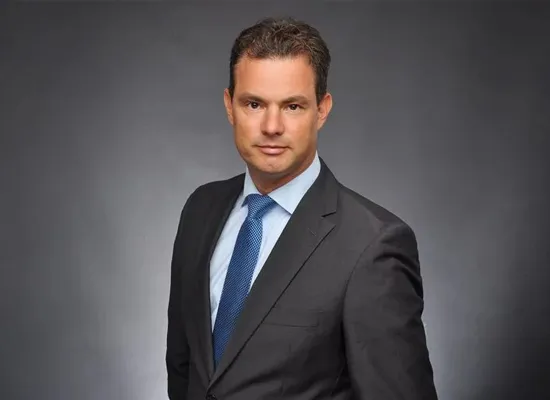
Andreas Koch, Supply Chain Expert
As Managing Director of Perzeptron GmbH, Andreas Koch is a proven expert in the field of supply chain management. Together with Markus Renner, he is pivotal to the company’s success and development. As joint managing directors, Andreas Koch and Markus Renner help Perzeptron GmbH develop innovative solutions for supply chain management.
Andreas Koch contributes his extensive experience and expertise to the company’s strategic orientation, with a focus on structuring efficient processes and successfully overcoming challenges in materials management and production processes.
Koch and Renner’s shared expertise helps companies to continuously optimize order lead times, increase their adherence to delivery deadlines, and reduce their costs and tied-up capital. As leading figures in supply chain management, they play a key role in ensuring that the company not only responds to current market requirements, but also actively shapes the supply chain landscape of tomorrow.
KPIs and more: How Perzeptron GmbH is tackling supply chain challenges
If we see the supply chain as a company’s vital circulatory system, it soon becomes clear that a smooth flow is crucial for goods to reach their destination as quickly as possible. In a company, the coordination between different departments such as purchasing, production, transport and customer service can be as complex as the coordinated interaction of the various codependent organs in the human body.
The challenge is to identify optimization potential and align customer requirements with the necessary cost reductions and efficiency enhancements. Key performance indicators (KPIs) are one possible solution, but it often takes more than that. Only by monitoring uniform KPIs can you improve the alignment of your organization and make it more agile, which will ultimately result in greater customer satisfaction. These are principles that Perzeptron GmbH successfully follows when optimizing supply chains.

